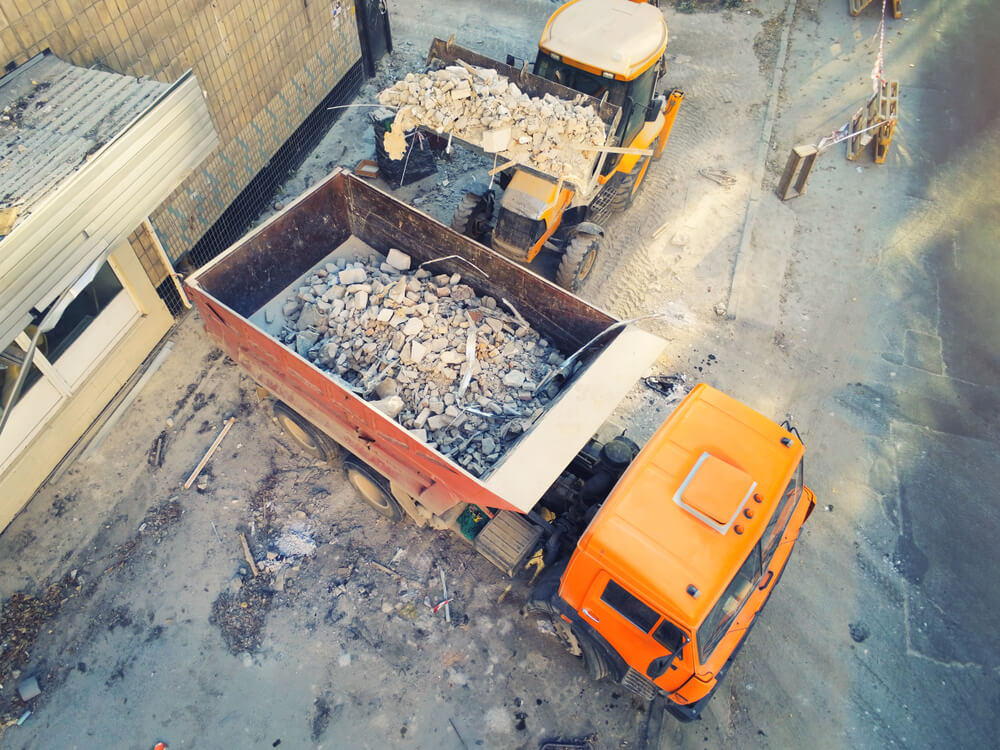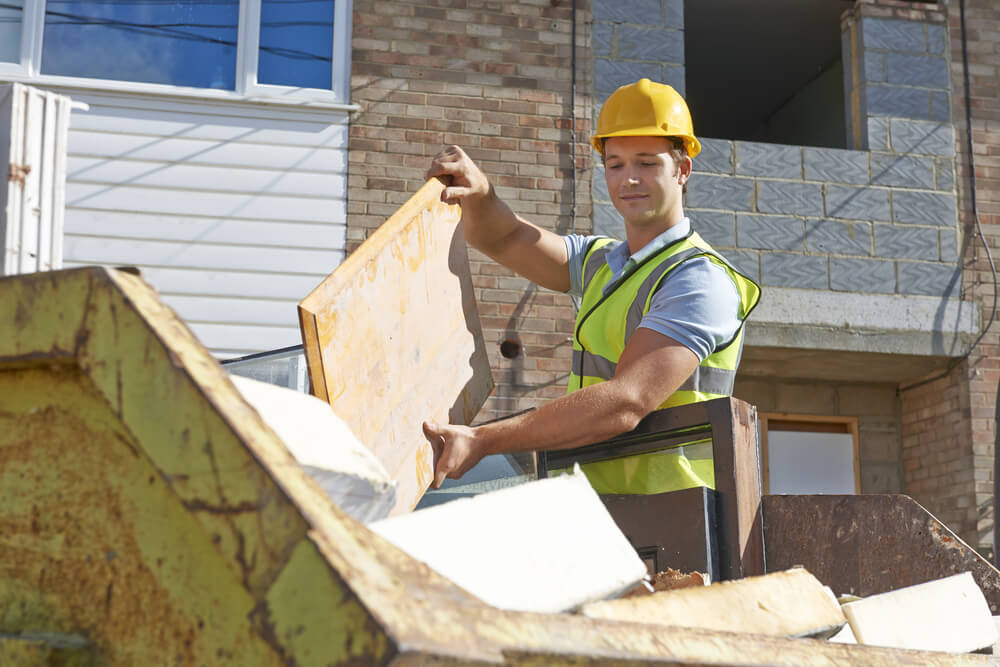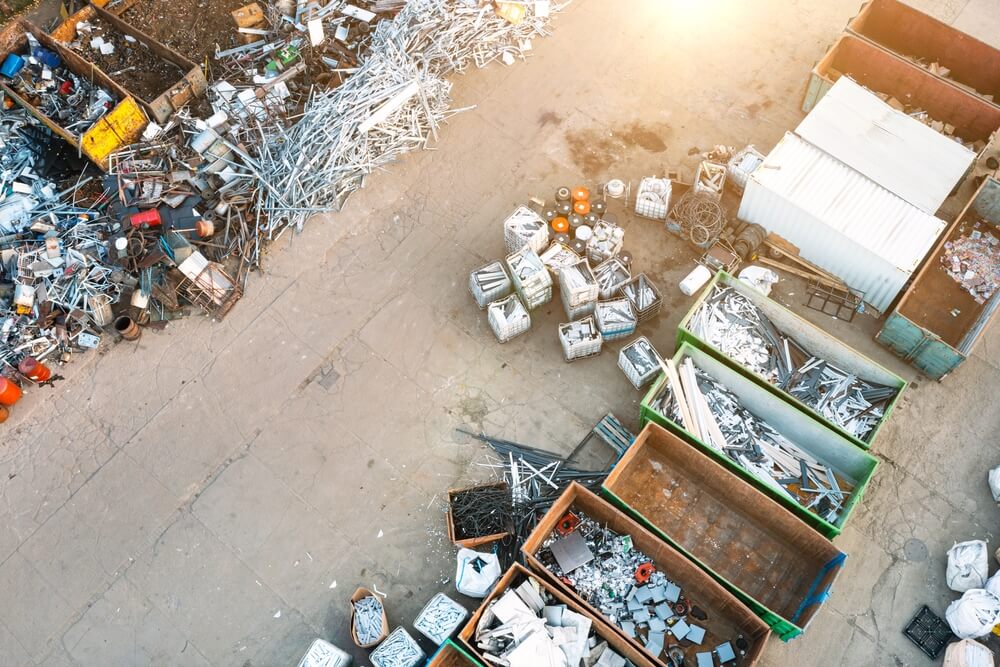Construction projects, whether large or small, inevitably generate a significant amount of waste. From discarded building materials to debris, managing this waste is a critical aspect of any construction project. Proper construction waste management not only contributes to a cleaner and safer job site but also plays a pivotal role in environmental conservation. It’s a task that requires careful planning, efficient execution, and adherence to local and federal waste disposal regulations.
However, the process of disposing of construction debris is not as straightforward as it may seem. It involves more than just collecting waste and dumping it in a landfill. The potential hazards associated with mishandling construction waste are numerous.
Improper disposal can lead to serious environmental issues, such as soil contamination and air pollution. It can also pose health risks to construction workers and the surrounding community. That is why we at Dumpster Rental Service make sure to implement effective solutions for waste disposals.
Moreover, construction waste often contains materials that can be recycled or reused. By neglecting to properly sort and dispose of this waste, valuable resources are wasted. This not only has environmental implications but can also result in missed opportunities for cost savings. Therefore, understanding the safe and efficient ways to dispose of construction debris is crucial for any construction project.

In-depth Look at Efficient Methods for Construction Waste Disposal
Effective construction waste management begins with a well-planned strategy for disposing of building materials and debris. This strategy should consider the types of waste generated, the volume of waste, and the disposal options available. It’s not just about construction trash removal; it’s about implementing a system that promotes recycling, reduces waste, and minimizes environmental impact.
Discuss Effective Sorting and Segregation Methods for Different Types of Debris
One of the most effective methods for handling construction waste is sorting and segregating different types of debris. This process involves separating waste into categories such as:
- wood,
- metal,
- concrete,
- plastic.
By doing so, it becomes easier to identify materials that can be recycled or reused, reducing the amount of waste that ends up in landfills.
For instance, wood can be chipped and used as mulch or compost, while metals can be melted down and repurposed. Concrete and bricks, on the other hand, can be crushed and used as a base for roads and driveways. By implementing effective sorting and segregation methods, construction sites can significantly reduce their environmental footprint and potentially save on disposal costs.
Analysis of the Benefits of On-site Waste Processing Techniques
On-site waste processing techniques, such as construction debris recycling and construction site cleanup, offer numerous benefits. These techniques involve processing waste directly at the construction site, either by sorting and segregating materials for recycling or by using specialized equipment to crush or compact waste.
One of the main advantages of on-site waste processing is that it reduces the need for transportation. This not only cuts down on fuel consumption and emissions but also saves time and money. Additionally, on-site processing can result in a significant reduction in waste disposal fees, as many recyclable materials can be sold or reused, offsetting the cost of disposal.
Furthermore, on-site waste processing can improve site safety by reducing the number of debris on the site. This can help prevent accidents and injuries, contributing to a safer working environment. Therefore, on-site waste processing techniques are not only beneficial from an environmental and economic perspective but also from a safety standpoint.
Examination of Safe Practices for Construction Waste Disposal
While efficiency is crucial in construction waste management, safety should never be compromised. Safe debris disposal practices are essential to protect workers, the public, and the environment from potential hazards associated with construction waste. These practices encompass everything from handling construction waste to disposing of building materials and construction site cleanup.
Detail Safety Measures to Observe When Handling and Transporting Construction Waste
Handling and transporting construction waste involves several safety measures. First, it’s important to ensure that waste is properly contained to prevent spills or leaks during transportation. This is particularly crucial for hazardous waste, which can pose serious environmental and health risks if not properly managed.
Second, waste should be loaded and unloaded safely to prevent accidents. This involves using appropriate equipment and techniques to handle heavy or bulky waste. It also means ensuring that vehicles used for transportation are in good condition and suitable for the type of waste being transported.
Finally, all waste should be transported to a licensed disposal or recycling facility. Illegal dumping of construction waste can lead to severe penalties, not to mention the potential environmental damage. Therefore, it’s essential to ensure that waste is disposed of in accordance with local and federal regulations.
Elaborate on the Role of Safety Equipment and Protective Gear in Preventing Accidents During Debris Clearance
Safety equipment and protective gear play a crucial role in preventing accidents during debris clearance. This includes items such as hard hats, safety glasses, high-visibility clothing, and steel-toe boots. These items protect workers from potential hazards such as falling debris, sharp objects, and heavy equipment.
In addition to personal protective equipment, other safety measures should be in place during debris clearance. This includes maintaining a clean and organized work area, using appropriate tools and equipment, and following safe work practices. For example, heavy debris should be lifted using equipment rather than manually to prevent injuries.
Training is also a key component of safety during debris clearance. Workers should be trained on safe work practices, how to use safety equipment, and what to do in case of an emergency. Regular safety meetings and inspections can also help to reinforce safety practices and identify any potential hazards.
Review of the Role of Professional Waste Management Services
While on-site construction waste management strategies are effective, there are instances where the scale or complexity of a project necessitates the expertise of professional waste management services. These services specialize in construction waste disposal methods, ensuring safe and efficient handling of construction waste, from building material disposal to construction site cleanup.

Present the Advantages of Hiring Professional Waste Disposal Companies for Large-Scale Projects
For large-scale projects, the volume and diversity of waste generated can be overwhelming. In such cases, hiring professional waste disposal companies can be a game-changer. These companies have the expertise and equipment to handle large volumes of waste efficiently and safely. They can provide comprehensive services, including construction trash removal, disposal of building rubble, and construction debris recycling.
Professional waste disposal companies also have the capacity to handle different types of waste, including hazardous materials. They can ensure that waste is disposed of in accordance with local and federal regulations, reducing the risk of penalties for non-compliance. Moreover, they can provide documentation of proper waste disposal, which can be crucial for audit purposes.
Highlight the Benefits of These Services in Terms of Regulatory Compliance and Environmental Responsibility
Regulatory compliance is a major concern in construction waste management. Failure to comply with waste disposal regulations can result in hefty fines and potential legal action. Professional waste disposal companies are well-versed in these regulations and can ensure that waste disposal practices are compliant.
Moreover, these companies can play a significant role in promoting environmental responsibility. They can provide solutions for construction waste recycling, reducing the amount of waste that ends up in landfills. They can also provide advice on waste reduction strategies, helping construction projects to become more sustainable.
In conclusion, while managing construction waste can be a complex task, it is a crucial aspect of any construction project. By implementing effective waste disposal methods, observing safe practices, and considering the use of professional waste management services, construction projects can minimize their environmental impact, ensure regulatory compliance, and promote a safer working environment.
Emphasizing the Importance of Safe and Efficient Construction Waste Disposal
As we’ve explored, maintaining safe and efficient waste disposal practices in construction projects is of paramount importance. It’s not just about keeping the construction site clean and organized; it’s about ensuring the safety of workers, the public, and the environment.
It is about regulatory compliance and avoiding the potential legal and financial repercussions of improper waste disposal. And it is about sustainability, reducing waste, and making the most of available resources through recycling and reuse.
Effective construction waste management involves a combination of strategies, from sorting and segregating waste to on-site processing techniques. It involves observing safety measures when handling and transporting waste and using safety equipment and protective gear. And for large-scale projects, it may involve enlisting the help of professional waste management services.
But perhaps most importantly, effective construction waste management requires a commitment from all players involved in a construction project. From project managers to workers, everyone has a role to play in achieving better waste management standards. This might involve training in safe waste handling practices, implementing waste reduction strategies, or simply being mindful of the waste one generates.
Ultimately, the goal of construction waste management is not just to dispose of waste but to manage it in a way that is safe, efficient, and environmentally responsible. By striving towards this goal, we can contribute to a more sustainable construction industry and a healthier planet. Join us in our journey, and contact us today!

